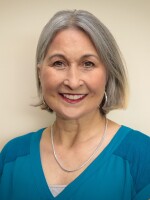Although the overall job market has improved, the U.S. Labor Department finds an increasing number of Americans with disabilities are unemployed.
Three women living with blindness in Jacksonville are searching for jobs, and not finding any.
“I’ve had over at least 18 years of customer service experience, and I know if someone were to give me a chance I know I could do it,” said Sue Metcalf, who’s been searching for a job for two years.
“I go in really confident, dressed really nice, and explain to them what I can do and the interview goes really well and they never call you or they send you an automated email saying, ‘We’re sorry, but we chose other candidates.'"
Sue Metcalf, Sandy Clark and Sonide Ward are all legally blind. They were among scores of workers laid off two years ago by Convergys.
Combined, the three have 35 years of customer service experience. They’ve interviewed at several call centers in Jacksonville — there were even a few second interviews — but they remain unemployed.
Ward says she doesn’t need a lot of training, just an opportunity, and she’s frustrated by companies that claim to be disability-friendly.
“Even though on their application, they might say they are an EEOC opportunity. Whatever. It’s just for talking, just for show, they don’t really mean it,” Ward said.
Sandy Clark says she’s interviewed for customer service work at Comcast, ADT, and most recently at a homeless pet shelter. “I always feel confident when I go in. She was very nice, polite and all that, but I just didn’t figure that she’d call me since I use the speech program.”
During work, Sandy uses a technology called JAWS, or Job Access with Speech. Any business willing to hire her would have to allow a Division of Blind Services engineer come out and integrate JAWS into their system.
Joshua Beran, a state employment specialist who’s been working with the three women, says employers get cold feet when asked to put something new on their computer system. “The honest fact is, this software is essentially like loading up a new version of Windows; just really comes down willingness on the employer’s part to say ‘Okay, I know there’s one extra step here, maybe two, and I’m willing to take those because I want a good person like Sandra Clark.’”
The women may be facing what’s called an “attitudinal barrier,” according to Florida Coastal School of Law professor Rod Sullivan. He has worked with some of the most prominent attorneys handling cases for the blind in Florida.
“Sometimes employers will find pretextual, non-disability reasons for not hiring someone who is blind,” said Sullivan, “because they don’t want to have to deal with a disability or deal with providing a reasonable accommodation for that disability.”
A pre-textual non-disability reason could mean the hiring official decided other applicants were more “mature” or perhaps more “enthusiastic.”
Sullivan says it’s hard to prove that a disability was a factor that resulted in not being hired. It’s why a non-hiring employment discrimination case has a very low chance of success, and few attorneys want to handle them.
Instead, Sullivan points to advantages to hiring blind employees. “Once they get into a job, there are studies that show they have these lower turnover rates and that they have these lower rates of injury on the job, which I don’t think most employers are familiar with.”
The state Division of Blind Services estimates 300 of its clients are looking for work in Northeast Florida.
Sue Metcalf is trying to stay positive, “because it’s easy to get discouraged; but you have to stay positive. There again, you have perfectly qualified people out here with skills, we are qualified to do the job.”
Metcalf, Clark and Ward are among 20 local job seekers in a special category; with training from the state and Florida State College at Jacksonville, they’re considered “Job Ready,” able to start with a company, today.





